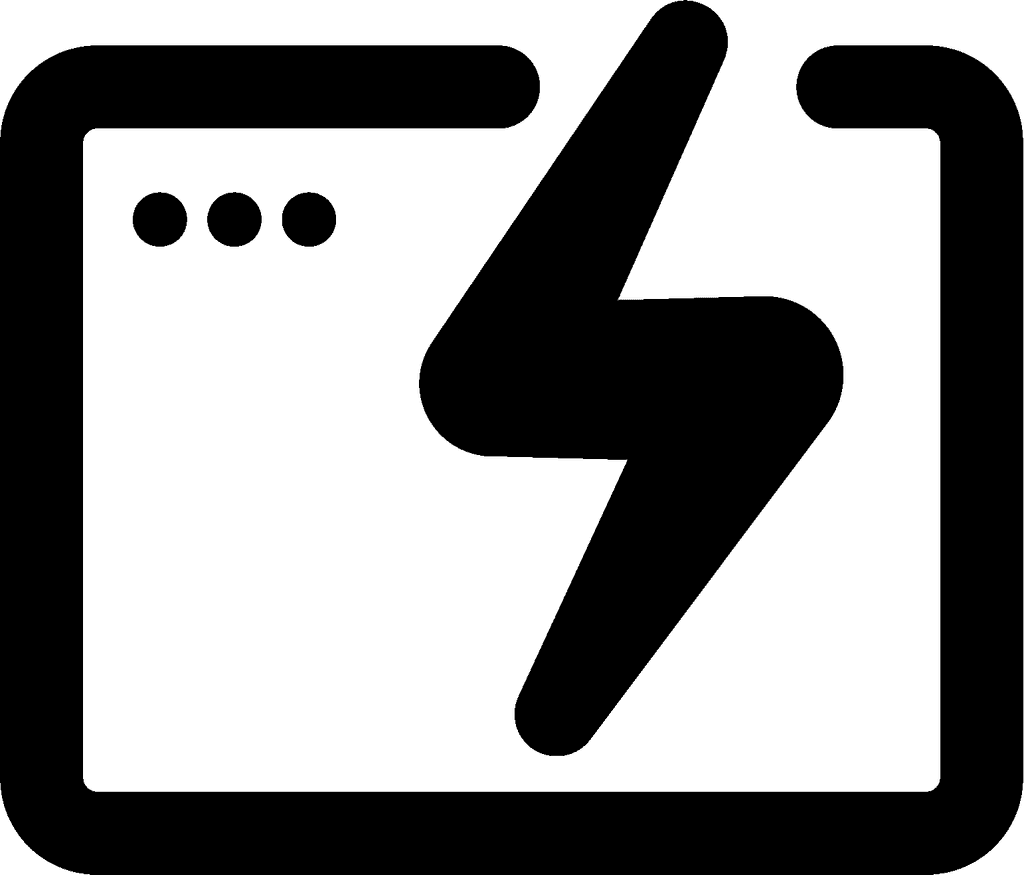Rolls AI Chatbot to Employees: Streamlining Internal Communication
Rolls-Royce is taking a significant step towards embracing artificial intelligence in its workforce. The renowned engineering company has announced the rollout of an AI chatbot to its employees, aiming to enhance productivity and streamline internal processes.
The new AI assistant will provide Rolls-Royce staff with instant access to company information, policies, and procedures, potentially saving time and reducing the workload on human resources departments. This move aligns with the growing trend of businesses integrating AI tools to support their workforce and improve operational efficiency.
While the introduction of AI chatbots in corporate settings is not entirely new, Rolls-Royce's implementation could serve as a notable case study for other large-scale manufacturing and engineering firms. The success of this initiative may influence how other companies in the industry approach AI adoption and employee support technologies.

Evolution of AI in the Professional Services Industry
AI has rapidly transformed how the Big Four firms and other professional services companies operate. From automation to advanced analytics, these technologies have reshaped workflows and client offerings.
Historical Impact of AI on Big Four Firms
PwC, KPMG, EY, and Deloitte embraced AI early, integrating it into their audit and advisory practices. AI-powered tools enhanced data analysis, risk assessment, and fraud detection capabilities. These firms developed proprietary AI platforms to streamline operations and provide deeper insights to clients.
For example, Deloitte's Argus system uses natural language processing to review complex documents. EY's AI-based audit tools analyze vast datasets to identify anomalies and patterns human auditors might miss.
Advancements in Generative AI and Chatbots
Recent breakthroughs in generative AI have sparked a new wave of innovation. Chatbots and language models are being deployed to assist with client inquiries, research, and document drafting.
PwC's Digital Lab developed an AI assistant to help employees with technical questions and data analysis. KPMG introduced a generative AI platform to enhance tax and advisory services. These tools aim to boost productivity and free up professionals for higher-value tasks.
AI Institute and Long-Term Investment Plans
Big Four firms have established dedicated AI research centers and long-term investment strategies. EY launched its AI Lab to explore cutting-edge applications. KPMG created an AI Center of Excellence to drive innovation across its global network.
These initiatives focus on developing AI solutions tailored to professional services, training staff, and collaborating with tech partners. Firms are also investing in AI ethics frameworks to ensure responsible development and deployment of these technologies.
Integrating AI Chatbots into Employee Workflows
AI chatbots are transforming how employees work by automating tasks, facilitating communication, and enhancing project management. These tools offer significant potential to streamline operations and boost efficiency across organizations.
Boosting Productivity through Automation
AI chatbots excel at handling repetitive tasks, freeing up employees' time for more complex work. They can schedule meetings, set reminders, and manage calendars with minimal human input. Chatbots assist in writing emails by suggesting content and proofreading text. They generate reports and compile data, reducing manual effort and potential errors.
For presentations, AI chatbots can create initial PowerPoint drafts, suggest layouts, and even provide relevant statistics. This automation allows employees to focus on refining content and strategic thinking rather than spending hours on basic formatting.
Enhancing Communication with AI-Powered Chatbots
AI chatbots improve internal communication by providing instant responses to common queries. They access company databases to offer up-to-date information on policies, procedures, and employee benefits. This reduces the burden on HR departments and ensures consistent information across the organization.
In customer-facing roles, AI chatbots handle initial inquiries, qualifying leads before passing them to human representatives. They can also assist employees during live chats by suggesting responses and providing relevant product information.
For global teams, AI-powered translation features in chatbots facilitate seamless communication across language barriers.
AI in Project Management and Planning
AI chatbots are revolutionizing project management by automating routine tasks and providing data-driven insights. They can create project timelines, assign tasks, and send automated reminders to team members. This ensures deadlines are met and workloads are balanced.
Chatbots analyze historical project data to predict potential bottlenecks and suggest resource allocation. They provide real-time updates on project status and generate progress reports, keeping stakeholders informed without manual input from project managers.
For strategic planning, AI chatbots can process large amounts of market data and internal metrics to identify trends and opportunities. This aids in decision-making and long-term planning efforts.
Ensuring Quality and Accuracy with AI Tools
AI tools offer powerful capabilities but require careful implementation to maximize accuracy and reliability. Proper quality assurance processes, risk mitigation strategies, and due diligence are essential for leveraging AI effectively.
Quality Assurance in AI Outputs
Robust quality assurance is critical for AI-generated outputs. Organizations should establish clear quality criteria and testing protocols. Regular audits of AI outputs help identify and correct errors or biases.
Implementing human oversight and review processes adds an extra layer of verification. Subject matter experts can validate AI-generated content for accuracy and completeness.
Continuous monitoring and feedback loops enable ongoing refinement of AI models. This iterative approach improves output quality over time as the system learns from corrections and new data inputs.
Mitigating Risks of Inaccurate Information
AI systems can potentially produce inaccurate or misleading information if not properly managed. Implementing fact-checking protocols helps catch errors before dissemination.
Cross-referencing AI outputs against reliable sources adds credibility. Organizations should maintain up-to-date knowledge bases to train and validate AI models.
Clear labeling of AI-generated content allows users to apply appropriate scrutiny. Providing mechanisms for users to flag potential inaccuracies enables swift corrections when issues arise.
Due Diligence and AI in Consulting
Consulting firms using AI must conduct thorough due diligence to ensure reliable outputs. This includes vetting AI vendors, assessing model limitations, and understanding underlying data sources.
AI should complement, not replace, human expertise in consulting engagements. Consultants should critically evaluate AI-generated insights and recommendations before presenting to clients.
Transparency about AI usage builds trust with clients. Firms should clearly communicate how AI tools are applied and their role in generating deliverables.
Addressing Accessibility and Social Equality
Rolls-Royce's AI chatbot initiative aims to create a more inclusive digital workplace while reducing technological barriers. The company recognizes the importance of accessibility and social equality in implementing this new tool.
Building an Inclusive Digital Work Environment
Rolls-Royce is committed to ensuring its AI chatbot is accessible to all employees. The company has partnered with UK disability charity Scope to incorporate features that accommodate various disabilities. These include screen reader compatibility, customizable text sizes, and voice command options.
The chatbot's interface utilizes high-contrast color schemes and simple layouts to enhance usability for those with visual impairments. Rolls-Royce has also implemented closed captioning for any audio content generated by the AI.
Employees with mobility limitations can interact with the chatbot through adaptive devices, ensuring equal access to its functionalities.
AI and the Reduction of the Digital Divide
The implementation of AI chatbots at Rolls-Royce addresses the digital divide among employees. By providing a user-friendly interface, the chatbot helps bridge the gap between tech-savvy workers and those less familiar with digital tools.
The company offers comprehensive training programs to familiarize all employees with the chatbot's features. These sessions cater to various learning styles and technical proficiencies.
Rolls-Royce has also established dedicated support teams to assist employees who may struggle with the new technology. This approach ensures that no one is left behind in the digital transformation process.
Empowering Diverse Workforce Through AI
Rolls-Royce's AI chatbot serves as a powerful tool for empowering its diverse workforce. The system is programmed to provide unbiased information and support, promoting equal opportunities for all employees regardless of their background.
The chatbot offers multilingual support, breaking down language barriers within the organization. This feature enables non-native English speakers to access information and resources in their preferred language.
To promote social equality, the AI is designed to use inclusive language and avoid gender stereotypes. It provides equal access to career development resources, training materials, and company policies for all employees.
Rolls-Royce regularly updates the chatbot's knowledge base to reflect the latest diversity and inclusion best practices, ensuring it remains a valuable tool for fostering an equitable work environment.
Future Potential and Challenges for AI in Business
AI presents significant opportunities for businesses to enhance efficiency and innovation. Companies face key considerations in global deployment, talent acquisition, and workforce impacts as they integrate AI technologies.
Scaling AI Deployment in Global Markets
The global generative AI market is expanding rapidly. Major tech hubs in the US, UK, and Europe are leading AI development and implementation. Companies are establishing AI incubators to foster innovation and accelerate deployments.
Middle Eastern nations are investing heavily in AI infrastructure. This creates new opportunities for businesses to enter emerging markets. However, varying regulations across regions pose challenges for consistent AI application.
Cultural differences impact AI adoption rates and use cases. Firms must tailor AI solutions to local needs and preferences. Partnerships with regional tech firms can facilitate smoother market entry and expansion.
Prospective Developments in AI and the Talent Market
The demand for AI expertise is surging worldwide. Companies are competing intensely for skilled AI professionals. This talent shortage is driving up salaries and benefits in the tech sector.
Universities are expanding AI programs to meet industry needs. Online learning platforms offer accessible AI training options. Employers are also investing in upskilling current staff in AI competencies.
Gen AI tools are automating some coding tasks. This may reduce demand for entry-level programmers. However, it also creates new roles focused on AI oversight and ethics.
Evaluating AI's Impact on Employment and Task Prioritisation
AI is transforming job roles across industries. Routine tasks are increasingly automated, shifting human focus to higher-value work. This requires employees to adapt and acquire new skills continuously.
AI assists with task prioritization and workload management. It analyzes data to identify critical projects and deadlines. This helps teams allocate resources more effectively and boost productivity.
Some jobs may become obsolete due to AI advancements. However, new positions are emerging in AI development, implementation, and governance. The net impact on employment levels remains uncertain and varies by sector.
Frequently Asked Questions
AI chatbots are transforming employee engagement and productivity in companies worldwide. The following questions address key aspects of implementing these tools in corporate settings.
What are the benefits of implementing AI chatbots for employee engagement?
AI chatbots enhance communication and streamline information access for employees. They provide instant responses to common queries, reducing wait times and improving overall efficiency.
These tools also offer 24/7 support, enabling employees to get assistance at any time. This constant availability can significantly boost employee satisfaction and productivity.
How does Deloitte's PairD enhance productivity among EMEA employees?
PairD, Deloitte's AI chatbot, offers personalized assistance to employees across Europe, the Middle East, and Africa. It provides quick access to internal resources, policies, and procedures.
The chatbot also helps with task automation, freeing up time for employees to focus on more complex and value-adding activities. This leads to increased productivity and job satisfaction.
What are the cost considerations when introducing an AI chatbot in a corporate setting?
Initial implementation costs include software development or licensing, integration with existing systems, and employee training. Ongoing expenses involve maintenance, updates, and potential cloud hosting fees.
Companies should also consider the long-term savings from reduced human resource needs in areas like IT support and HR inquiries. The return on investment often becomes evident as efficiency improves over time.
In what ways can AI chatbots transform the workforce experience?
AI chatbots can personalize the employee experience by providing tailored information and support. They assist with onboarding, training, and continuous learning processes.
These tools also facilitate better work-life balance by handling administrative tasks efficiently. Employees can focus on more meaningful work, leading to increased job satisfaction and engagement.
How do AI tools from institutions like the Deloitte AI Institute shape the future of work?
The Deloitte AI Institute develops cutting-edge AI solutions that address complex business challenges. These tools help companies adapt to rapidly changing work environments and customer expectations.
AI-powered analytics and decision-making tools enable more data-driven strategies. This leads to improved business outcomes and a more agile workforce capable of responding to market shifts quickly.
What steps should a company follow to successfully integrate an AI chatbot into their workflow?
Companies should start by identifying specific areas where an AI chatbot can add value. Conducting a thorough needs assessment ensures the chatbot addresses real employee pain points.
Choosing the right technology partner and platform is crucial. The selected solution should integrate seamlessly with existing systems and be scalable for future growth.
Employee training and change management are essential for successful adoption. Clear communication about the chatbot's capabilities and limitations helps set realistic expectations.
Regular feedback collection and performance monitoring allow for continuous improvement. This iterative approach ensures the chatbot remains relevant and effective over time.

Build a more powerful help desk with Risotto
Minimize Tickets and Maximize Efficiency
Simplify IAM and Strengthen Security
Transform Slack into a help desk for every department
Schedule your free demo



